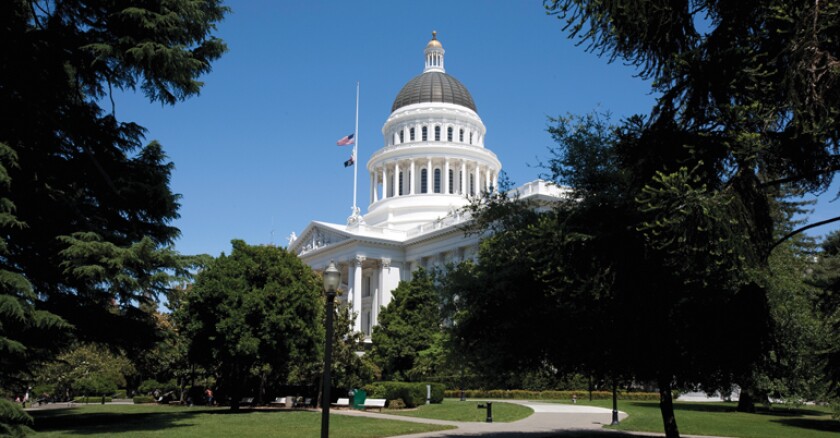Lawmakers in both houses yesterday passed Senate Bill 500, which would set a zero-emissions standard for new-model autonomous vehicles operating in the state after the Jan. 1, 2030 start date.
The bill was supported by the Union of Concerned Scientists (UCS) and others eyeing transportation policy and some of the steps to make the transportation sector more sustainable. A spokesperson from Gov. Gavin Newsom’s office said he will review the bill “on its own merits” before signing. However, Newsom has been a strong advocate for environmental sustainability.
Autonomous technology has largely been progressing in a more electrified direction. Of the some 1,200 AVs currently testing on California roadways, more than half are electric.
“Overwhelmingly, the electric and the hybrid vehicles make the majority of the fleet. We’re seeing less and less vehicles that are gas-powered vehicles,” said Miguel D. Acosta, chief of autonomous vehicles at California Department of Motor Vehicles, in comments during a webinar last week to discuss the intersection between electric vehicles and autonomous technology. The webinar was organized by Veloz, a Sacramento-based EV advocacy group.
Companies like Cruise and Zoox are developing autonomous shareable vehicles and both companies say they are committed to zero-emissions fleets in the future.
“We believe that the full realization of autonomous technology for mobility requires … zero emission, sharing and full autonomy,” said Bert Kaufman, head of corporate and regulatory affairs at Zoox, in his comments during the webinar.
“Ultimately, what we are aiming for is a fleet powered by renewables,” he added.
Cruise, which is operating in San Francisco, recharges its vehicles with surplus solar power generated by Central Valley farms. It’s what the company cleverly calls “farm-to-fleet.”
“So to be clear, every mile we now drive in California goes directly to benefit these farmers by buying their renewable power, creating a tangible link between California’s agricultural communities and Cruise, even as our AVs charge hundreds of miles away,” said Prashanthi Raman, head of global government affairs for Cruise.
Senate Bill 500 was introduced by Sen. Dave Min, D-District 37, and would help to close existing policy gaps regarding the phase-out of fossil fuel-burning vehicles. For example, AVs operated in shared passenger fleets — like those from Cruise or Zoox — are governed by the California Clean Miles Standard, which will require that all shared vehicles used by transportation network companies are decarbonized by 2030.
“Turning to privately owned vehicles, that’s where we see a policy gap,” said Mollie D’Agostino, policy director at the University of California, Davis Policy Institute, where she focuses on the evolution of shared, electric and automated vehicles. D’Agostino made her remarks during the Veloz webinar.
Furthermore, said D’Agostino, if AVs are going to be high-mileage vehicles — and current trends show them ideally suited for ride-hailing and package delivery operations — they should be emissions free.
“I think, in terms of electrifying AVs, we will need policy,” she added.
“I think we need policy to ensure that these high-mileage vehicles are electrified,” said D’Agostino.
California has already pledged to putting five million EVs on the road by 2030, and Newsom signed an executive order to require that all new passenger vehicles sold in the state be zero emissions by 2035.
The Golden State is now home to more than 425,000 EVs — or about 42 percent of all electric cars in the nation. However, the transportation sector is still the largest single contributor to greenhouse gas emissions in California. Transportation is responsible for 40.9 percent of greenhouse gas emissions, an amount that is actually trending down, even as vehicle miles traveled has been trending up, according to a report released earlier this year by the nonprofit and nonpartisan group Next 10.
“Cutting-edge sensor technology shouldn’t be paired with antiquated combustion engines,” said Elizabeth Irvin, a UCS senior transportation analyst, in a statement. “Automated vehicles can be part of a clean, equitable transportation system as long as they are run on zero-emission electricity, lead to widespread pooling of trips, and are deployed in coordination with frequent, reliable, and accessible mass transit.”
Editor's note: This story was updated to include comment from Gov. Gavin Newsom's office.









